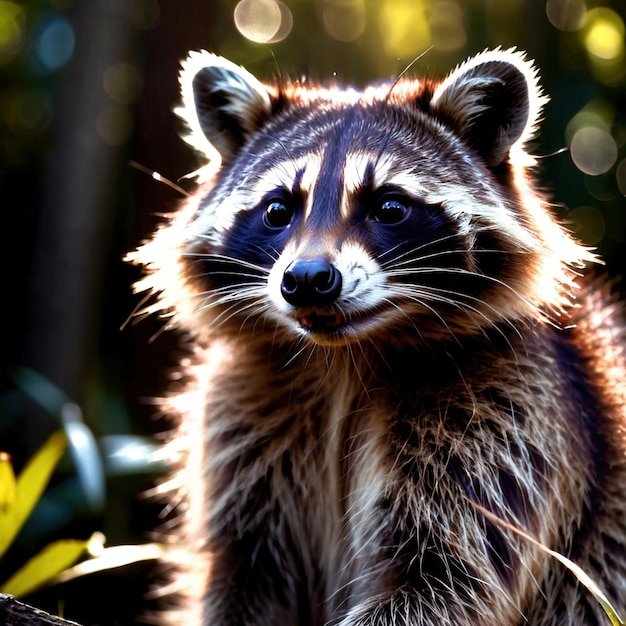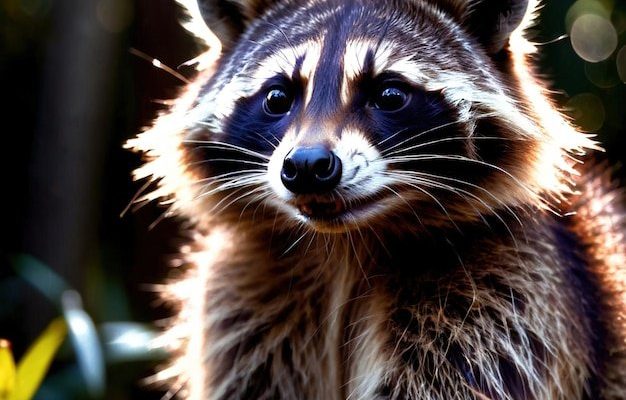
You might be wondering, “What exactly do raccoons do that’s so important?” Well, let’s dive into their role in the environment. These furry little critters are not only fascinating to watch, but they also contribute to their habitats in ways that you might not expect. From seed dispersal to controlling insect populations, raccoons are an essential part of the ecological puzzle.
Understanding the Raccoon’s Habitat
Raccoons are adaptable creatures. They can thrive in various environments, from forests and wetlands to urban areas filled with people. Their ability to adjust to different surroundings is one of the reasons they’re so successful as a species.
You’ll find them in dense woods, where they can climb trees, or even in neighborhoods where food sources abound. Raccoons prefer habitats that offer plenty of cover and water sources. They’re also highly territorial and often establish home ranges that overlap with those of other raccoons.
This adaptability helps them take on different roles within their habitat. For example, in urban settings, they often become scavengers, helping to recycle waste. In natural areas, they might forage for fruits, nuts, and insects, contributing to their ecosystem’s health.
The Raccoon’s Diet and Foraging Behavior
Raccoons are omnivores, which means they eat a little bit of everything. Their diet includes fruits, nuts, insects, small animals, and even human food scraps. This broad diet makes them a crucial part of the food web.
When raccoons forage, they help keep populations of insects in check. By consuming pests, they contribute to a balance that can protect plants from being overgrazed. They’re often described as nature’s “cleanup crew” because they eat decaying fruits, which helps in nutrient recycling.
What’s fascinating is how they forage. Raccoons have very sensitive paws that work like hands. They can feel through mud and water, finding hidden treats with ease. This unique ability allows them to exploit food sources that many other animals may overlook.
Seed Dispersal and Plant Health
By munching on fruits and berries, raccoons help disperse seeds across their territories. After enjoying a meal, raccoons often excrete the seeds far away from the original plant. This process is crucial for plant reproduction, allowing new plants to grow in different locations.
You might be surprised to learn that some plants depend on animals like raccoons for their propagation. When seeds are dispersed away from the parent plant, it reduces competition for resources. This helps maintain genetic diversity and supports a healthy ecosystem.
Moreover, this seed dispersal can lead to the growth of new trees and shrubs, providing additional habitats for various species. So, the next time you see a raccoon munching on a berry, remember they’re not just indulging—they’re helping the environment thrive!
Controlling Insect Populations
Another crucial role of raccoons in the ecosystem is their appetite for insects. These little guys munch on all sorts of creepy-crawlies, including beetles, grubs, and worms. By keeping these populations in check, raccoons help maintain the balance of their ecosystems.
Imagine a garden overflowing with pests. Without natural predators like raccoons, these insects could multiply unchecked, damaging plants and disrupting the environment. So, when raccoons do their part in controlling these populations, they keep our gardens and forests healthier.
Interestingly, raccoons also help keep the soil healthy. By digging around for insects and other food sources, they aerate the soil, promoting better water infiltration and root growth. This kind of natural digging benefits plants, allowing them to thrive.
The Raccoon and Disease Dynamics
Raccoons play a complex role in disease dynamics in their ecosystems. While they can carry diseases like rabies and raccoon roundworm, they are also part of a larger system that helps keep diseases in check. Their interactions with other wildlife—like predators and scavengers—help regulate health across various species.
For example, when raccoons face disease challenges, it can affect the populations of other animals. Sometimes, their presence can help control the spread of diseases that could become rampant if left unchecked. It’s a balancing act, much like a family trying to keep harmony during the holiday season.
However, it’s crucial to maintain healthy raccoon populations to ensure this balance. When raccoon numbers decline, it can disrupt the natural checks and balances that help maintain ecosystem health.
Human-Raccoon Interactions
With their increasing presence in urban areas, human interactions with raccoons are often filled with both curiosity and concern. While they can be entertaining to watch, raccoons can sometimes cause trouble by raiding trash cans or getting into gardens.
Here’s the thing: Raccoons are just trying to survive. When we encroach on their habitat, they adapt by seeking food in our backyards. It’s essential to understand that they’re not just pests; they’re part of our ecosystem.
To coexist peacefully, it helps to secure your trash, keep pet food indoors at night, and even use fencing to protect gardens. When we take steps to minimize conflicts, we allow raccoons to continue their important ecological roles without unnecessary interference.
Raccoons may be seen as mischievous bandits, but their role in the ecosystem is anything but trivial. They help with seed dispersal, control insect populations, and maintain the balance of nature in ways we often overlook.
Understanding the raccoon’s contributions helps us appreciate these clever little creatures. By respecting their space and recognizing their importance, we can foster a healthier environment—for wildlife and ourselves. So, the next time you spot a raccoon rummaging through your garbage, consider giving it a little nod of respect. After all, they’re not just scavengers; they’re vital players in nature’s grand scheme.

